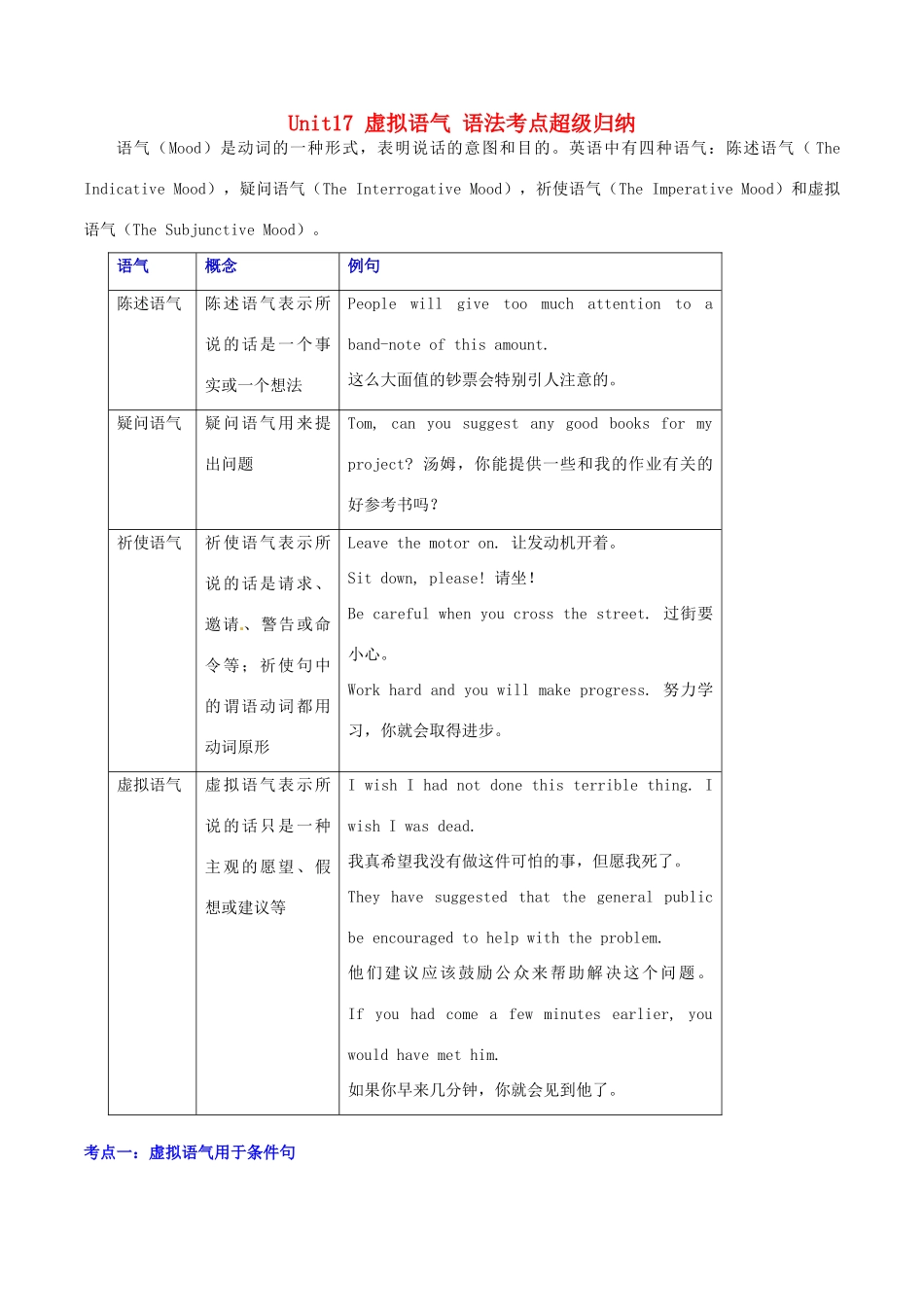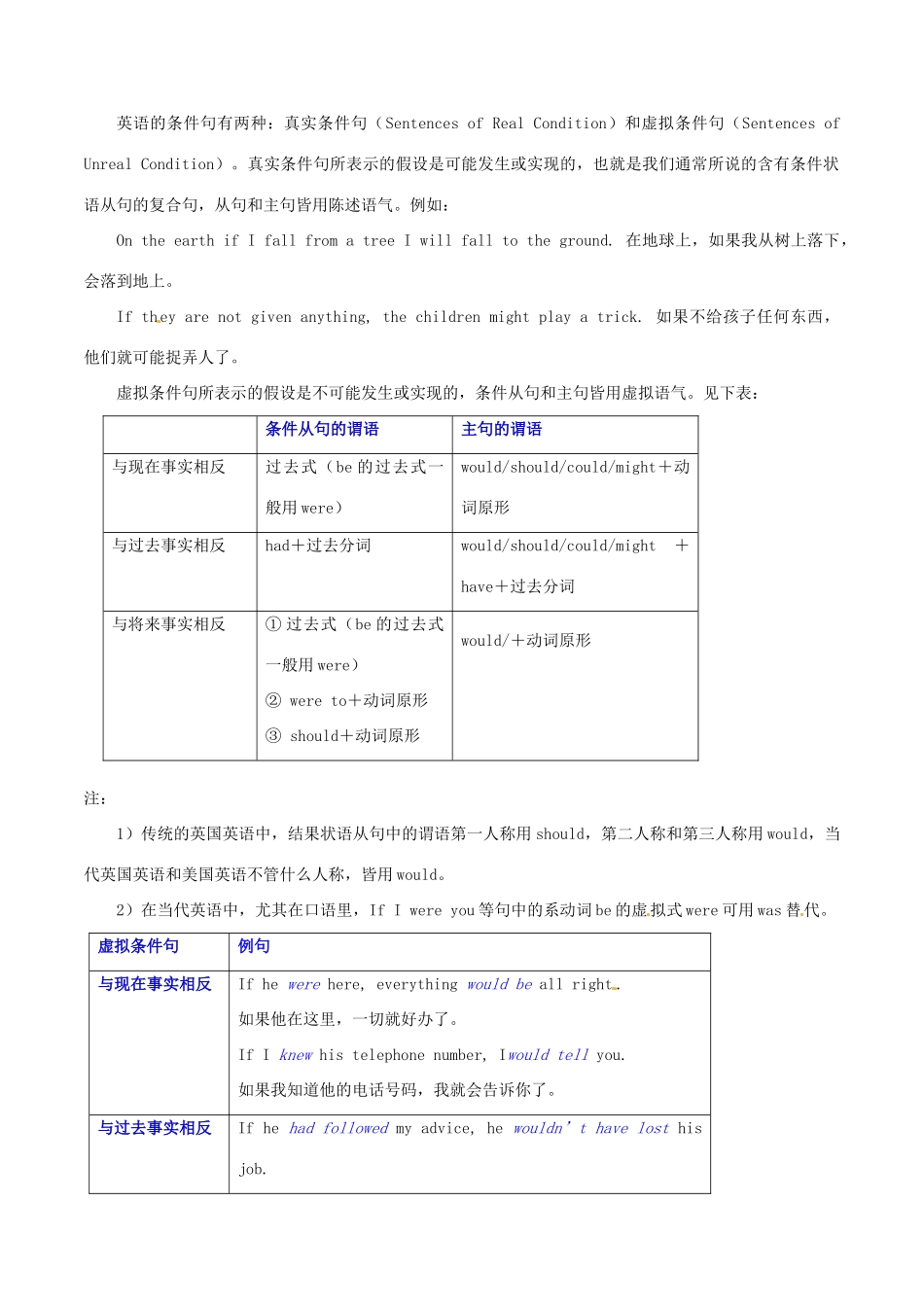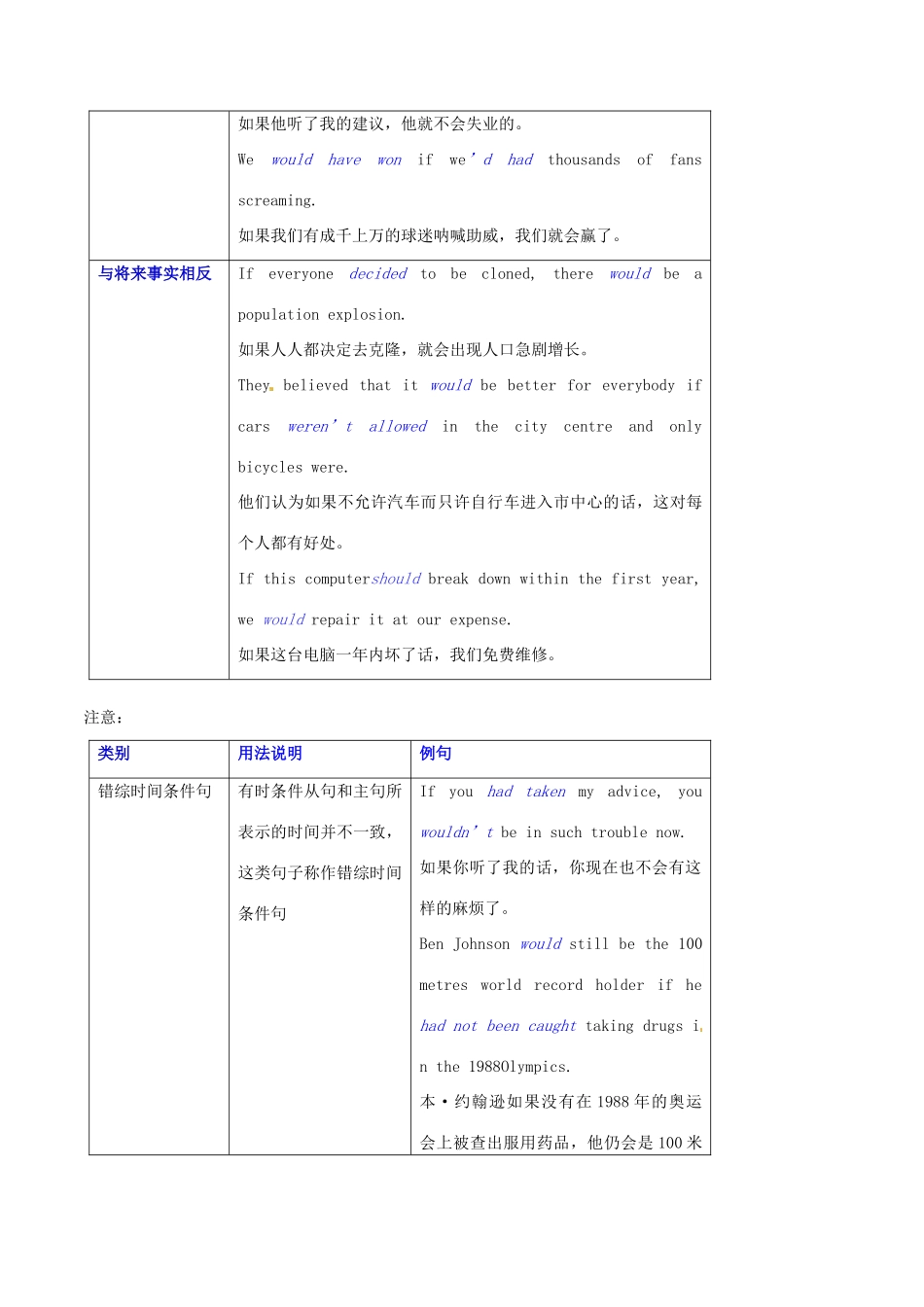Unit17 虚拟语气 语法考点超级归纳语气(Mood)是动词的一种形式,表明说话的意图和目的。英语中有四种语气:陈述语气( The Indicative Mood),疑问语气(The Interrogative Mood),祈使语气(The Imperative Mood)和虚拟语气(The Subjunctive Mood)。语气概念例句陈述语气陈述语气表示所说的话是一个事实或一个想法People will give too much attention to a band-note of this amount. 这么大面值的钞票会特别引人注意的。疑问语气疑问语气用来提出问题Tom, can you suggest any good books for my project? 汤姆,你能提供一些和我的作业有关的好参考书吗?祈使语气祈使语气表示所说的话是请求、邀请 、警告或命令等;祈使句中的谓语动词都用动词原形Leave the motor on. 让发动机开着。Sit down, please! 请坐!Be careful when you cross the street. 过街要小心。Work hard and you will make progress. 努力学习,你就会取得进步。虚拟语气虚拟语气表示所说的话只是一种主观的愿望、假想或建议等I wish I had not done this terrible thing. I wish I was dead. 我真希望我没有做这件可怕的事,但愿我死了。They have suggested that the general public be encouraged to help with the problem. 他们建议应该鼓励公众来帮助解决这个问题。 If you had come a few minutes earlier, you would have met him. 如果你早来几分钟,你就会见到他了。考点一:虚拟语气用于条件句英语的条件句有两种:真实条件句(Sentences of Real Condition)和虚拟条件句(Sentences of Unreal Condition)。真实条件句所表示的假设是可能发生或实现的,也就是我们通常所说的含有条件状语从句的复合句,从句和主句皆用陈述语气。例如:On the earth if I fall from a tree I will fall to the ground. 在地球上,如果我从树上落下,会落到地上。If they are not given anything, the children might play a trick. 如果不给孩子任何东西,他们就可能捉弄人了。虚拟条件句所表示的假设是不可能发生或实现的,条件从句和主句皆用虚拟语气。见下表:条件从句的谓语主句的谓语与现在事实相反过去式(be 的过去式一般用 were)would/should/could/might+动词原形与过去事实相反had+过去分词would/should/could/mig...


